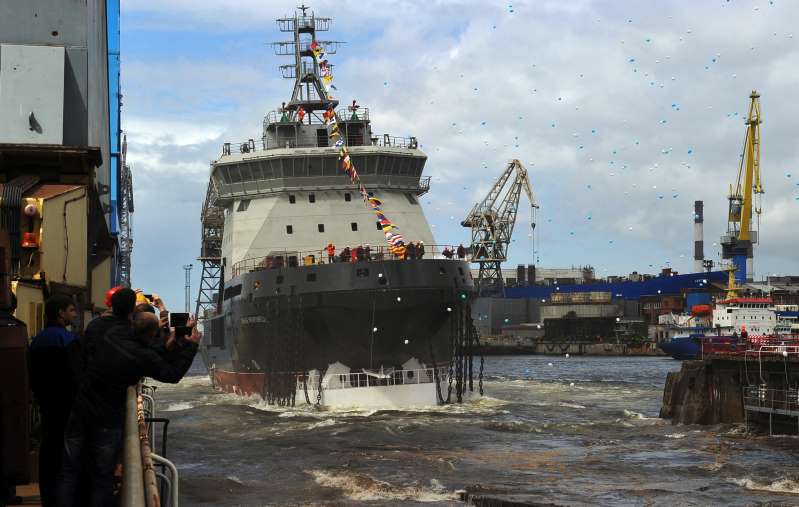By David Brennan, Newsweek–
The U.S. Coast Guard has warned that American is falling behind Russia in the race to dominate the Arctic, as warming global temperatures open up areas previously inaccessible due to ice.
Speaking at the Aspen Security Conference, U.S. Coast Guard Commandant Admiral Karl Schultz said American leaders had serious concerns that they were lagging behind Russia in the world’s newest military frontier.
“Russia has a huge Arctic coastline, they have clear Arctic interest, they derive their GDP from there,” Schutlz explained, according to Russian state news agency Tass. “From the security standpoint and the militarizing of the Arctic, that is probably the future place for a contentious situation.”
The Pentagon recently released a new Arctic strategy document that indicated it considers the far north increasingly important in a new era of great power competition with Russia and China.
Moscow is deploying more resources northwards and investing in Arctic-capable forces, while Beijing has declared itself a “near-Arctic” power. The U.S. is moving to meet this challenge and give the region more prominence in its strategic planning.
Schultz said the U.S. “should be concerned about Russia, who is way ahead of us in this game, and the emerging aggressive China, who is pushing into the game.” He noted that while Americans may “think about the Arctic as a very faraway place,” the “Russian world view is very much based on the Arctic.”
Its importance to Russia is reflected in Moscow’s investment in Arctic resources. Though its economy and military budget are dwarfed by those of the U.S., Russia maintains a fleet of dozens of icebreakers while the U.S. only has two. Schultz also warned that while China is still behind both nations, it will “outbuild” the U.S. by 2025.
A “polar security cutter” is currently under construction for the Coast Guard, effectively a militarized ice breaker. Its order demonstrates the U.S military pivot towards the Arctic and an effort to close the gap with its rivals, particularly Russia.
In May, Schutlz told Defense News, “We talk about the Arctic through a different lens now. We talk about the Arctic as a competitive space.” He noted that both Russia and China are bolstering their Arctic capability, and stressed the U.S must do the same.
“We’re championing increased capabilities in the Arctic, we’re championing better communications, better domain awareness, we’re talking about innovation, we’re talking about resiliency, we’re talking about rule-based order,” he continued.
“I want to see the Arctic remain a peaceful domain. China’s a self-declared Arctic state. They’re not one of the eight Arctic nations, so for me, for the service, its presence equals influence.”
Schultz told the Aspen Security Conference that the U.S. above all desires a “peaceful, environmentally safe” Arctic region. He noted that American forces currently cooperate with Russia on search and rescue missions and a satellite system used by mariners world wide. “I think we absolutely need to find the common ground,” he said.
Though Schutlz said the U.S. wants an “environmentally safe” Arctic, the Pentagon’s recent strategy report omitted the term “climate change” entirely, Axios noted. Though it notes melting sea ice and rising temperatures, the document does not acknowledge the human factor element in the changes.


Leave A Comment
You must be logged in to post a comment.